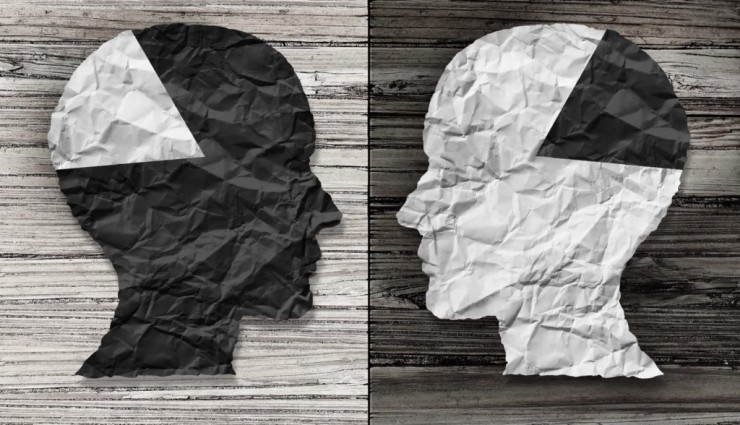Double standard means different behavior in dealing with similar people or events. In simpler terms, we prohibit or punish a person or group from doing something while we allow or encourage an equivalent person or group to do the same thing. Double standards are very destructive to personal and social relationships. In this article, we will describe different examples of double standards for you and tell you what to do when faced with double standards and how not to get involved in these standards.
What does the double standard mean?
A double standard is a principle or policy applied differently to similar cases without proper justification. This happens when two or more people or groups are treated differently when they should be treated the same way.
Examples of double standards
An example of a double standard is treating two similar employees differently after doing similar work, for instance, by punishing one and rewarding the other when there is no valid reason. Another prevalent example is when a teacher treats two students differently and gives one a higher grade just because he likes him and dislikes the other. In the following, we examine some examples of double standards in different fields.
1. Double standard in the literature
A famous literary example of double standards can be seen in the novel ” Animal Farm ” written by George Orwell. In this novel, a group of animals decides to take over the farm where they live to rule themselves instead of being led by humans. One of the main rules that animals follow is that “all animals are equal.”
However, over time, pigs dominate other animals and behave preferentially in different ways. Ultimately, the pigs overturn all the rules the animals had initially agreed upon and instead adopt a single law that exemplifies double standards: “All animals are equal, but some are more equal.”
2. Double standards in emotional relationships
There are different types of double standards in relationships. For example, your partner may expect you always to stay thin, have a proper diet, and achieve your appearance, but he does not have such an approach and continues to consume high-fat and fattening foods. Also, if your romantic partner forbids you from doing things while allowing himself to do the same things, he uses double standards.
In cohabitation, if a man says no to the offer of sex, he will likely be accused of infidelity by his wife or of having a problem with his libido. Conversely, a woman may expect a man to understand her when she is tired or not in the right mood and not expect sex. Because it is more socially accepted that women are the “gatekeepers” of their sexuality.
3. Raising children with double standards
Some double standards are due to childhood and the different upbringing intended for male and female children. For example, some families are less strict with male children. Another example is families that expect their sons to prioritize work over marriage and have no problem with sons getting married later, while their approach to daughters is entirely different.
Who is applying the double standard?

- A person who applies double standards to people: for example, parents who react differently to the exact behavior of their children, depending only on which child did it.
- A person who applies double standards to groups: for example, a manager who applies double standards to employees by discriminating in the hiring process based on factors such as gender or race.
- A group that applies double standards to individuals: for example, a media that attacks a social activist while previously praising another social activist for the same behavior.
- A group that applies double standards to groups: excessive leniency when punishing politicians as a whole versus average and even harsh treatment of ordinary citizens.
Why do people use double standards?
People apply double standards for various reasons, intentionally or unintentionally. Deliberate use of double standards requires a conscious decision and usually happens when people feel that double standards will help them achieve a specific goal. This purpose may be to help someone we like, to annoy someone we don’t like, or to make our arguments more convincing.
Emotional motivations often drive the unintentional use of double standards and do not require a conscious decision. Accidental use of double standards includes not paying attention to or understanding their problematic nature. People unwittingly apply double standards for many reasons. For example, people usually use double standards about how they judge their behavior compared to others because they want to feel better about their actions.
This means that when it comes to judging a highly adverse action, people think it less harshly if they do it themselves than when someone else does it because they don’t want to feel what they did themselves. has a bad
How to recognize the double standard?
A double standard occurs when unequal behavior takes place and does not have proper justification. Treating two or more individuals or groups unequally is not always a double standard, and sometimes it is rational. For example, due to an elected official’s responsibility and power, it is reasonable to be more sensitive to his actions than the performance of a simple member. Also, expecting better behavior from adults compared to children is usually not a double standard because these two people are so different that different expectations from them are justified.
To determine whether specific inequitable behavior indicates a double standard, ask yourself if there is a reasonable justification. If necessary, you can ask the person doing the unequal treatment or someone aware of the issue.
How to deal with double standards?
First, make sure that what happened is a double standard. Then, if you haven’t done so before and it makes sense in your current situation, ask the person you think is applying the double standard to explain why. Then point out the logical and moral issues of the double standard and help the applicant internalize those issues and negate his motivation to use the double standard in the first place. If none of these solutions work, you should choose an alternative explanation based on the circumstances, such as leaving the problem to someone who can solve it or cutting off the relationship with the person who applies the double standard.
How to avoid double standards?
To avoid the application of double standards, whenever you treat two or more of the same people or groups differently, you need to make sure you have a reasonable justification for the different treatments. This may sound simple, but it is often tricky, Especially when applying double standards to just one person. For example, when you treat a person harshly because of his mistake, just because you don’t like him, and this is when you haven’t seen someone else make a similar mistake recently, you can determine whether you are being too harsh.
If you find yourself using a double standard, you can generally use the same techniques you use to deal with other people’s double standards to solve it.
final word
What is your experience? Do you remember a specific instance where you were treated with a double standard? Please write us how you have dealt with this situation in the comments section.



